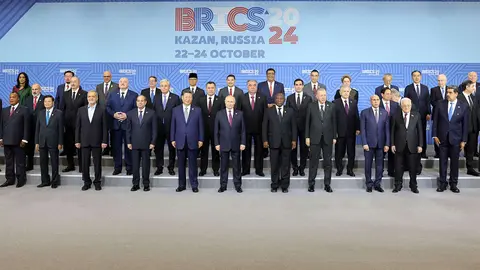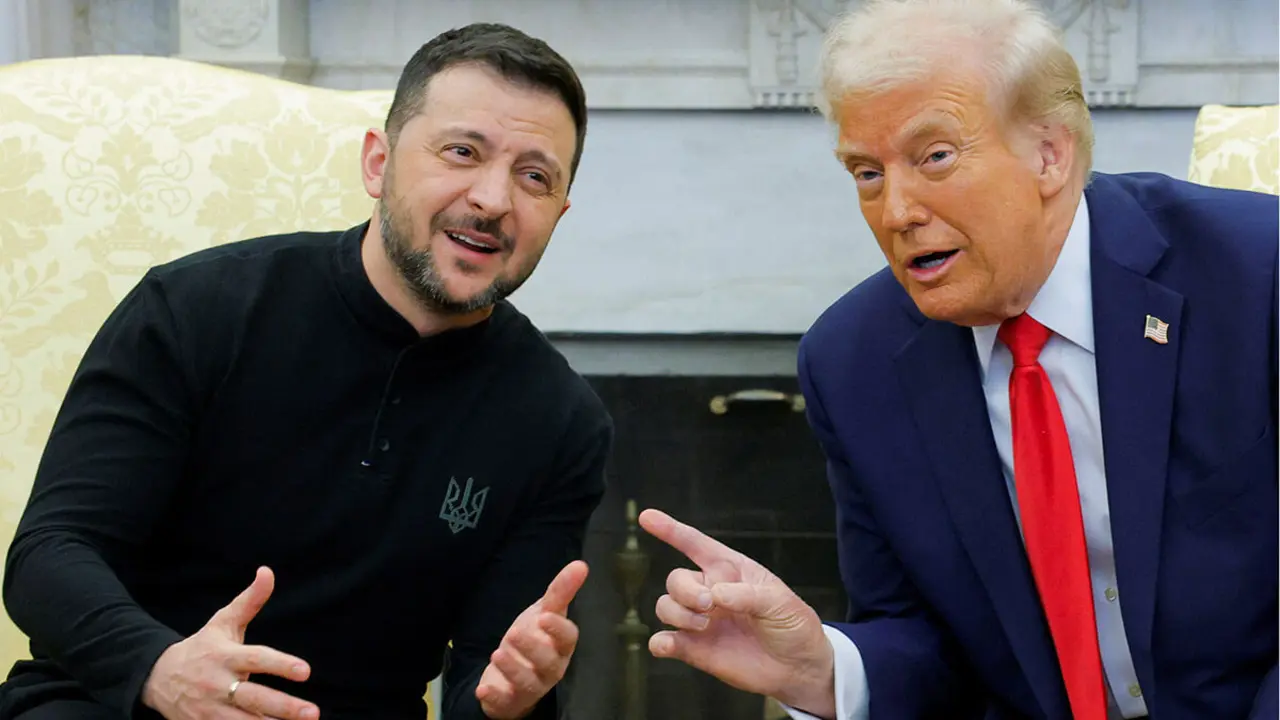Growing divisions hinder the BRICS international integration project

The BRICS group of countries emerged in 2009 with Brazil, Russia, India and China as founding members, later joined by South Africa (forming the current name with the initials referring to each country). In 2024, the entity expanded to include Egypt, Ethiopia, Iran and the United Arab Emirates, and this year, 2025, Indonesia has joined. Similarly, other emerging countries have submitted applications to join the group in the coming years.
The continuous expansion to new members adds structural challenges to the existing fractures that question the stability of the alliance's project to reach consensus on common, divisive, complex or sensitive issues.
Some of the main disagreements have to do with Russia, an important member of the BRICS, and its geopolitical interests.
The American magazine National Interest published an analysis by Mark N. Katz, honorary professor at the Schar School of Politics and Government at George Mason University, which debated the usefulness of the bloc for Russia, which has been experiencing severe sanctions since February 2022 as a result of its war with Ukraine. Senior officials and commentators close to the Russian government see the expansion of BRICS as an ideal tool for reducing Western hegemony. In October 2024, Russian President Vladimir Putin stated that the expansion is a sign of strength, influence and authority on the new world stage. In January of that same year, he called for coordination between states to resolve regional and international security challenges that he attributed to Western actions.
The current general of the Russian Security Council and former defence minister, Sergei Shoigu, said in April last year that he hoped the BRICS countries would publicly expose the crimes of the Ukrainian regime. In November last year, Russian geopolitical thinker Alexander Dugin also expressed his hopes for the BRICS as the future replacement for the United Nations, representing a real multipolar structure with a track record. Russian political analyst Sergei Karajanov added that the United Nations is gradually becoming a vulnerable and irreparable organisation governed by Western bureaucrats.
For Putin and his allies, increasing the number of member states is essential to strengthening Eastern geopolitical influence over the West, although this requires the development of parallel bodies such as the BRICS+ grouping and the Expanded Shanghai Cooperation Organisation and their integration with entities such as the African Union, the League of Arab States, the Association of Southeast Asian Nations (ASEAN) and the Southern Common Market (MERCOSUR).
Other members of Putin's entourage have reaffirmed that Moscow does not want the BRICS to become too strong and that there are limits and interests among the members that are not entirely compatible. Similarly, in April this year, Russian Foreign Minister Sergei Lavrov stated that no independent judicial body should be created that would cause Russia to cede any part of its sovereignty, even in favour of any kind of friendly integration. Dimitry Trenin, a leading supporter of Putin's war against Ukraine, stated in December 2022 that the foreign policy objective of other BRICS members is to limit Russia.
On the other hand, Andrei Kortonov, academic director of the Council on International Affairs, said in October 2024 that he does not believe that the BRICS will replace the United Nations, but that it can act as a multilateral mechanism for establishing peace, although it is doubtful that it will be assigned this role. In August 2023, Kortonov also pointed out that the expansion project presents fundamental problems that could prove very costly in the long run, as greater diversity within the group will inevitably lead to more disagreements that will be more complex to resolve, in addition to the resentment generated among nations that are not accepted into the group.
This reveals a rift in Russia's spheres of influence, with one side focusing on the benefits of the BRICS' international expansion and ultimate interests, while the other highlights the limited benefits. These differences could break the fragile unity among members and hinder their ambition to propel the BRICS onto the global stage as a counterweight to the established international order with the United States and the West as major players.










